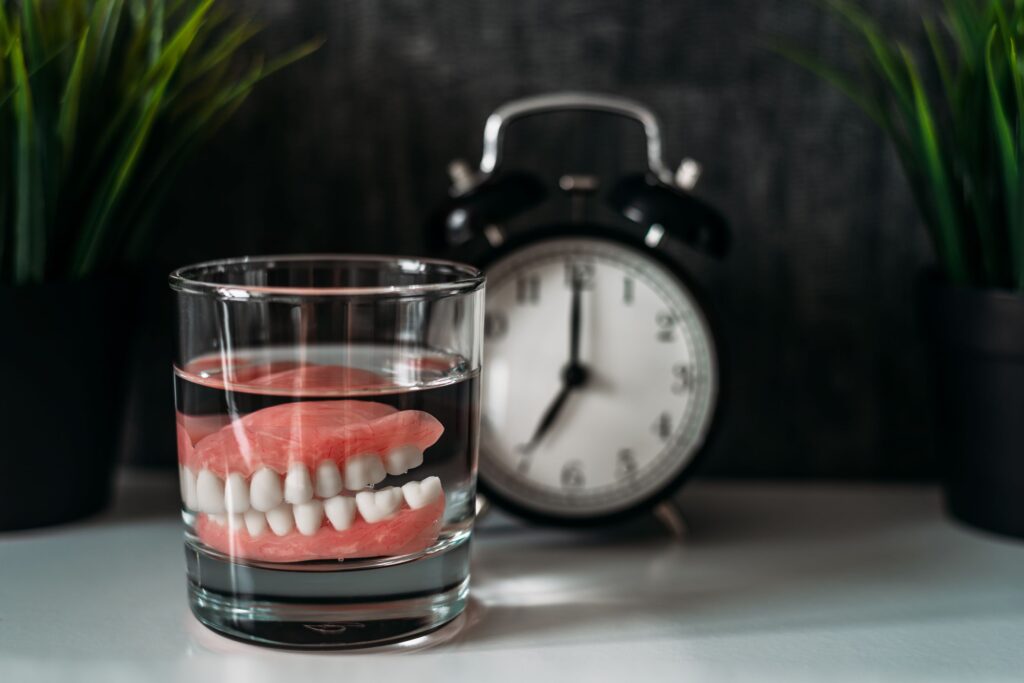
Dentures are the tried-and-true solution for rebuilding your grin because they are a versatile solution that can be adapted to meet your unique needs. Regardless of how many natural teeth you have remaining, your dentist can provide a set of partial, complete, or implant dentures to restore your smile’s functionality and appearance.
However, it often takes new patients about a month to adjust to wearing them, and there are a few common challenges you might run into during that time. Continue reading to learn more about what to expect to ease your transition to life with dentures!
First 24 Hours
You may have heard that sleeping in your dentures is unwise, but there’s an exception to that rule when they’re brand new. Once your dentist receives your restoration from the dental lab, they’ll schedule you for a final fitting to ensure everything works as intended. If everything checks out, you can leave with your new teeth in place.
Then, it’s best to keep them on continuously for the first day and night, especially if your condition required that one or more teeth be extracted to make room. The pressure of your prosthetics pressed against your connective tissues can reduce bleeding and swelling and encourage your mouth to heal.
First Couple of Weeks
You may develop sore spots in the first few days of wearing your dentures, so your dentist will likely schedule a follow-up appointment to check-in. They’ll want to make sure that your gums and jaw are mending themselves if you had teeth removed and will check to ensure that you don’t develop issues like gum disease.
Your connective tissues are still tender at this point, so it’s best to stick to soft foods that won’t irritate them. Popular options include applesauce, yogurt, mashed potatoes, and scrambled eggs. You should also place your new teeth in a glass of water or soaking solution overnight to eradicate germs.
After a Month
Eventually, as your mouth acclimates to the size, weight, and pressure of your dentures, you’ll grow more comfortable wearing them so you can eat and speak normally. It’s common to develop a slight lisp or other changes to your speech patterns until you’re more desensitized and don’t have to work so hard to keep your prosthetics in place while talking.
If you’re struggling with certain words or sounds, you can repeat them slowly out loud at home, where you don’t have to worry about being judged for mistakes. With enough practice and patience, it won’t be long before you relearn how to enunciate even the most complex words so you can be clearly understood.
If you experience ongoing issues like persistent pain or loosely fitting dentures, contact your dentist so they can check that everything fits correctly and has adequately healed.
About the Practice
Patients at Amaze Dental benefit from two talented dentists who provide a comprehensive array of top-tier services to people of all ages. Dr. Le and Dr. Najjar take the time to get to know your unique goals and concerns, then customize treatment plans to help you meet them. If you’re missing teeth, they utilize beautiful, tooth-colored materials and state-of-the-art equipment to provide comfortable replacements, including dental implants. You can request an appointment on the website or call (972) 230-1100.
